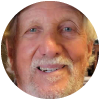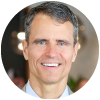Resilient Manager’s Toolkit: 6 Weeks to Better Work, Life and Relationships
This educational activity was jointly provided by AXIS Medical Education and Texas Hospital Association in collaboration with the Texas Organization of Rural and Community Hospitals (TORCH).
This educational series was made possible thanks to funding from The U.S. Department of Health and Human Services, Administration for Strategic Preparedness and Response (ASPR).
Program Overview:
This program was designed for frontline managers and consisted of six one-hour weekly facilitated sessions. Utilizing a collaborative sprint format and subject matter experts, the content includes strategies to promote resiliency for the frontline manager and provide support for the staff they supervise.
10/5/22 Session 1: Resiliency as a Habit – Recording & Resources now available
Bonanno, George A. The end of trauma: How the new science of resilience is changing how we think about PTSD. Hachette UK, (2021)
Couto, Diane. “How Resilience Works.” Harvard Business Review, (2002)
Konnikova, Maria “How People Learn to be Resilient”, New Yorker, (2016)
Seligman, Martin EP. “Building resilience.” Harvard business review 89.4 (2011): 100-106.
Van der Kolk, Bessel A. “The body keeps the score: Memory and the evolving psychobiology of posttraumatic stress.” Harvard review of psychiatry 1.5 (1994): 253-265.
10/12/22 Session 2: Combatting Exhaustion – Special Guest: Welela Tereffe, M.D., M.P.H. – Recording & Resources now available
- click here for session 2 handout
- click here for recording (opens in YouTube)
Additional Readings:
Brown, Brené, Daring greatly: How the courage to be vulnerable transforms the way we live, love, parent, and lead. Penguin, 2015.
Brown, Brené, Dare to Lead: Brave Work. Tough Conversations. Whole Hearts. Random House, 2018.
Kotter, John P., Leading change. Harvard business press, 2012.
Wiseman, Liz, and Greg McKeown, multipliers. ReadinGraphics, 2020.
Here’s something you know all too well: exhaustion accelerates employee turnover, increases clinical mistakes, and strips some of the enjoyment out of work and life. And here’s something you might not have heard: researchers have been busy the past few years identifying warning signs of fatigue and testing smart strategies to help people and companies thrive, even in tough times. Join us to hear about the best of this science and to learn about combatting exhaustion from special guest Dr. Welela Tereffe, who led MD Anderson’s clinical response to Covid-19 and is responsible for employee resiliency initiatives. You already know tired people don’t bounce back as fast as they normally would. Now you can learn how to help the people and organizations you care about the most put some of the spring back in their step in the face of challenges and obstacles.
Learning Objectives:
- Recognize initial indicators of fatigue to limit the onset of exhaustion.
- Use proven techniques to restore energy and renew internal emotional reserves

Welela Tereffe, M.D., M.P.H., M.H.C.M. is Chief Medical Executive at the University of Texas MD Anderson Cancer Center. She has strategic responsibility for extending the reach and value of MD Anderson’s cancer expertise across Texas, the nation, and the world. She oversees MD Anderson’s clinical divisions (7,000 people and $1.8B in annual GPR), national Cancer Network®, and international NGO relationships. She is deeply engaged in organizational transformation and has helped lead MD Anderson through multiple crises, fostering innovation and excellence while maintaining high levels of employee engagement and trust. Welela holds an M.D. from New York University and master’s degrees in Public Health and Health Care Management from Harvard. She is a frequently invited speaker to forums on organizational resilience, digital health innovation, health equity in cancer care, and leadership diversity.
10/19/22 Session 3: Social Support – Special Guest: Amy Schmisseur, Ph.D. – Recording & Resources now available
- click here for session 3 handout
- click here for recording (opens in YouTube)
Additional Readings:
Goleman, Daniel. Emotional intelligence: Why it can matter more than IQ. Bloomsbury Publishing, 1996.
Who do you call when the chips are down? If a name popped in your head immediately, you’re lucky. Not everyone at work and at home has a strong network of support to turn to in times of need. Worse, it’s a bug in the human condition where we often turn inwards when things get really bad, narrowing our focus to a tiny number of people. This is completely counter to decades of research that convincingly shows we need more people, not fewer people, when things get bad. The good news is that our special guest, Dr. Amy Schmisseur, knows how to help us fortify and strengthen our social support networks for the inevitable tough periods we all face. Strong social support networks improve our resiliency and the effectiveness of our responses in challenging times. Join us to learn practical ways to deepen your connections to your existing social support network and to encourage the people you care about to build resiliency by strengthening their support system.
Learning Objectives:
- Identify the main forces that prevent healthcare professionals from seeking social support when they need it.
- Develop strategies for building supportive networks to support your professional role
- Create a more resilient response in times of need.

Amy Schmisseur, Ph.D., is an Assistant Professor in Communication Studies at Belmont University. Dr. Schmisseur received her Ph.D. from the University of Texas with a dissertation on emotional strain and labor at work. While at the University of Texas and as a professor at the University of Kansas she won multiple awards for research and teaching excellence. Her undergraduate degree is from Ohio University, and her Master’s is from University of Cincinnati. She teaches graduate and undergraduate courses in health and organizational communication and consults widely.
10/26/22 Session 4: Mental Strategies – Special Guest: Maxine Trent, M.S., LPC-S, LMFT-S – Recording & Resources now available
- click here for session 4 handout
- click here for recording (opens in YouTube)
Additional Resources
Books:
Aaker, Jennifer, and Naomi Bagdonas. Humor, Seriously: Why Humor Is a Secret Weapon in Business and Life (And how anyone can harness it. Even you.). Currency, 2021.
Williams, Florence. The Nature Fix; Why Nature Makes Us Happier, Healthier, and More Creative, W.W. Norton Company, 2017.
Podcast Episode from Unexplainable: Yawn BabyYawn: https://podcasts.apple.com/us/podcast/yawn-baby-yawn/id1554578197?i=1000571311642
Rumination, worry, and anxiety. We know how our big brains can get us into trouble. But those same brains can get us out of trouble, too. To be more resilient, we need a few mental hacks and proven tools to stop negative cognitive cycles and restart positive ones. Join us as cognitive guru and therapist extraordinaire Maxine Trent walks us through a handful of techniques we can all immediately use to make our big brains more open, resilient, and adaptable in the face of setbacks. We’ll learn how to help ourselves and others deploy tools for mental agility and resilience, and we’ll even feel better at the end of the process. Big Brains unite!
Learning Objectives:
- Practice scientifically proven techniques to de-escalate internal stress responses via ACT.
- Prepare the most versatile and effective coping mechanisms to increase resiliency.

Maxine Trent, MS, LPC-S, LMFT-S, is Director of Employee Wellness for Baylor, Scott and White Healthcare. She implemented and organized a systemwide peer support counseling network at Baylor, Scott and White Healthcare with hundreds of certified peer counselors who have collectively provided support for thousands of healthcare workers. She holds a Master of Science from Texas A&M University, and she has seen patients for over three decades.
11/2/22 Session 5: The Resilient Family – Special Guest: Larry Allman, Ph.D., C.P., A.B.P.P. – Recording & Resources now available
- click here for session 5 handout
- click here for recording (opens in YouTube)
We are family, as the song goes. Back in the old days, people used to believe that it was possible to separate home (family) from work and vice versa. But years of excellent research—not to mention our own experiences—have shown that both parts of our life bleed into each other. Troubles at home transfer to stress at work and vice versa. To help reduce the impact of home strain and stress at work, we want resilient, adaptable families that can rise to challenges. And that has been studied for generations. Join us as Dr. Allman helps us understand best practices and tools for building resilient families.
Learning Objectives:
- Evaluate the main pitfalls that hobble resiliency in families.
- Exercise the five primary practices of resilient families.

Larry Allman, Ph.D., A.B.P.P., directed the Los Angeles Family Institute and the Hawaii Family Therapy Center. His undergraduate is from Clark University and his PhD is from Rutgers. He has been on the psychiatry faculties of UCLA and the University of Hawaii as well as on the psychology faculties at USC and the University of Hawaii. He served on the faculty of the psychiatry department at Tripler Army Hospital in Honolulu for twenty-five years. He works with families across the globe.
11/9/22 Session 6: The Resilient Organization – Special Guest: Nate Self – Recording & Resources now available
- click here for session 6 handout
- click here for recording (opens in YouTube)
We want our organizations to rise to the challenges before them and we want to be proud of the places we work. Brittle organizations don’t inspire confidence and can fall apart when we most need them to hold together. Join us as organizational expert and war hero Nate Self shares his twenty-five years of experience building strong, resilient organizations all over the world. He will help us identify and patch the weak points in our companies and on teams and give us tools for building the kinds of organizations that stand strong in the face of adversity tomorrow by showing us actions we can implement today.
Learning Objectives:
- Analyze what resilient healthcare organizations do differently from their peers.
- Identify near-term strategies to strengthen organizational resiliency.

Nate Self is an honor graduate of West Point and is the former U.S. Army Ranger Captain who led the internationally recognized mission in Afghanistan to rescue a MIA Navy SEAL. Following his battle with post-combat PTSD, Nate became an internationally recognized authority on stress, resiliency, and peak performance. Nate has been profiled on the front page of the Wall Street Journal, the Washington Post, Dateline NBC, and dozens of other media outlets. He is the author of Two Wars: One Hero’s Fight on Two Fronts, founder of a prominent leadership development company, and he has led hundreds of executive education programs throughout the world. He is an expert on managerial effectiveness, resiliency, and elite team performance. He teaches and consults internationally.
Target Audience:
Clinical and non-clinical frontline and middle managers in healthcare settings. Including but not limited to nursing, pharmacy, social workers, radiology, housekeeping, facility management, and supply chain.
Global Learning Objectives:
- Identify the early indicators of stress and fatigue to prevent exhaustion and burnout in the healthcare environment
- Apply scientifically validated strategies to increase resiliency in healthcare professionals and teams
Facilitators:


Cindi Baldi, Ph.D., M.B.A., M.S., is the founder and CEO of management science firm Culsure and is the lead data scientist at On‐Demand Leadership. Cindi holds a Ph.D., an M.B.A., and an M.S. in Management from the McCombs School of Business at the University of Texas at Austin, and a BS in Management from the University of North Carolina at Wilmington. Cindi is an expert on organizational effectiveness and has presented her research worldwide at institutions like the Stanford Business School, the INSEAD School of Business in France, and Ben‐Gurion University in Israel. Cindi is a serial entrepreneur who advises leadership teams throughout the world.
Geoffrey Tumlin, Ph.D., M.A., is the president of On‐Demand Leadership, and is the author of Stop Talking, Start Communicating, published internationally by McGraw‐Hill. Geoffrey’s writing and ideas have been featured in dozens of media outlets including the Chicago Tribune, the L.A Times, CNN/Fortune.com, and SiriusXM radio. Geoffrey holds a Ph.D. and an M.A. from the University of Texas at Austin and a B.S. from the United States Military Academy at West Point. He is a frequent guest of hospitals, governments, corporations, and nonprofit organizations across North America.
Disclaimer
Participants have an implied responsibility to use the newly acquired information to enhance patient outcomes and their own professional development. The information presented in this activity is not meant to serve as a guideline for patient management. Any procedures, medications, or other courses of diagnosis or treatment discussed in this activity should not be used by clinicians without evaluation of patient conditions and possible contraindications on dangers in use, review of any applicable manufacturer’s product information, and comparison with recommendations of other authorities.
